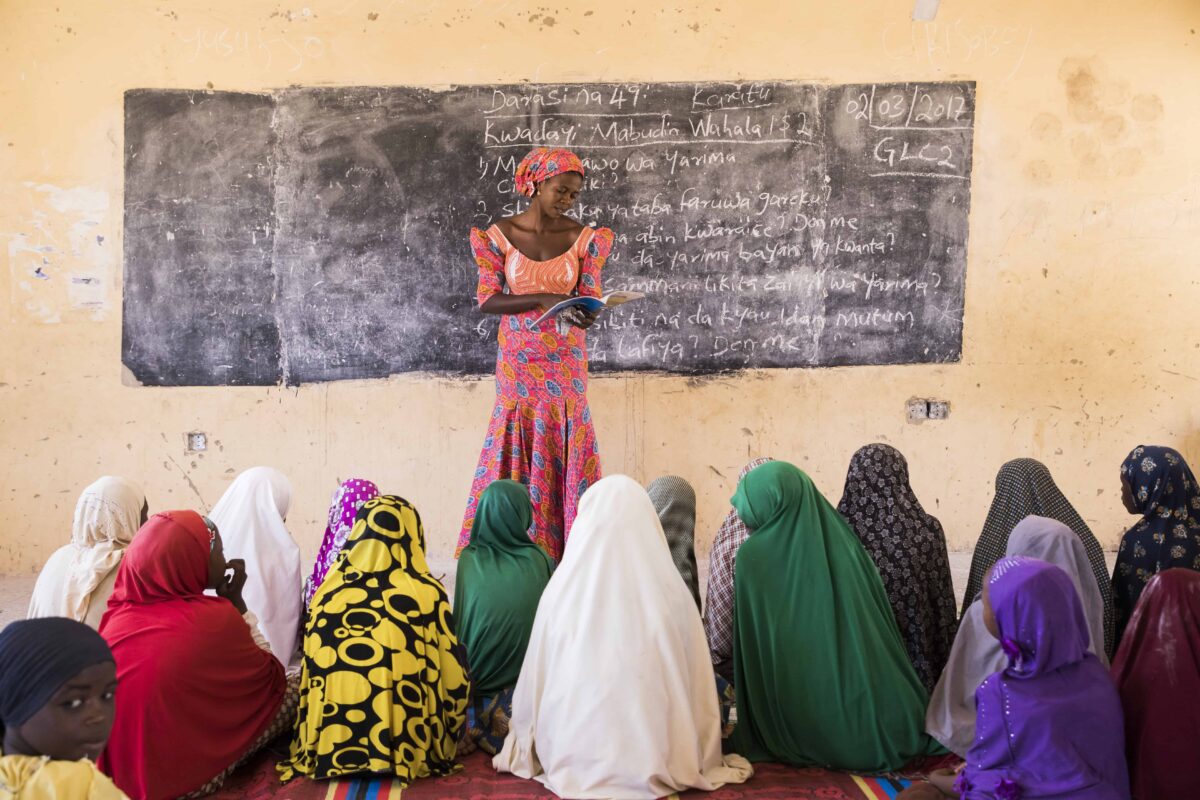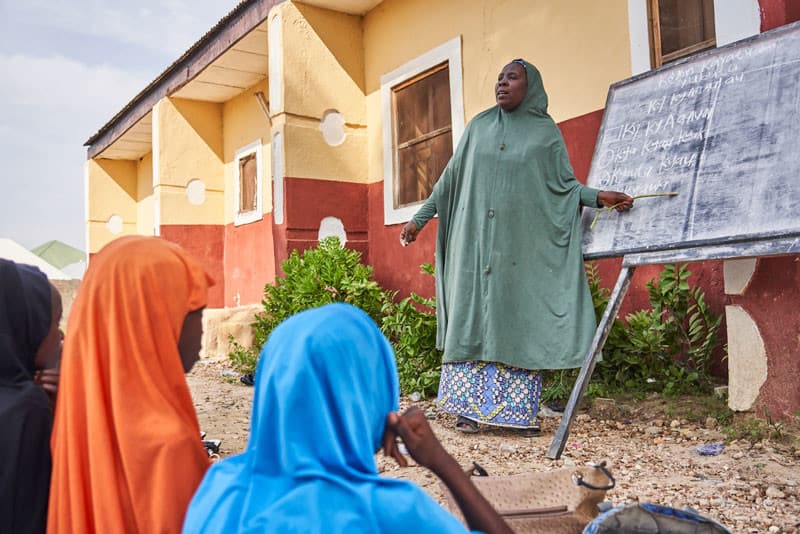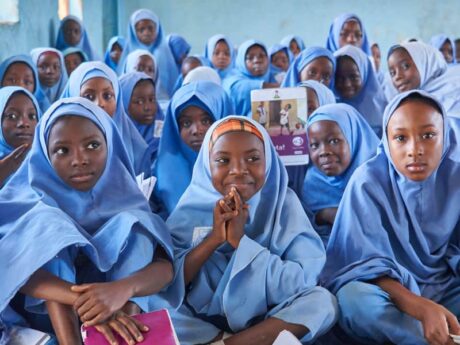Abuya, NigeriaTo improve the reading skills of more than 2 million children and youth in Northern Nigeria and promote quality instruction, the Northern Education Initiative Plus has developed reading textbooks for teachers and pupils.
Teacher guides and pupil reading materials for first to third grades in Hausa and the same materials for second to third grades in English as well were developed through a collaborative effort led by the Nigerian Educational Research and Development Council and state partners.
These materials were produced through a series of materials development workshops that involved some 28 leading education experts in the country. With strong technical support from the Northern Education Initiative Plus, the program was able to help these experts develop age appropriate materials for children. This exercise was followed by field testing and will be finalized after a validation exercise in Bauchi and Sokoto states.
“The development of these materials is a milestone for strengthening early grade reading in Nigeria,” said Professor Ismail Junaidu, Executive Secretary of Nigerian Educational Research and Development Council. “This will be one of the best things to happen to the Nigerian children, especially those in Bauchi and Sokoto states.”
In the first year of the project, 440 master trainers will be prepared so they can demonstrate these early grade reading instructional skills to more than 12,000 head teachers and teachers using the printed teacher guides.
The pupil textbooks will also be distributed for use by children in schools in September 2016, which is when the new school year begins.
los cinco años, Nigerian government-led Northern Education Initiative Plus is funded by the U.S Agency for International Development and aims to improve reading outcomes of more than 2 millones de alumnos de primaria en 6,868 escuelas y 11,129 centros de aprendizaje no formal. The initiative is implemented by Creative Associates International.
Focusing on the child
Reflecting on the achievements to date, Nafisa Ado from USAID said: “The U.S government keenly supports the Nigerian government to achieve improved learning outcomes in early grade classes. We have produced materials that are pedagogically appropriate, culturally sensitive and sustainable and replicable. This is for the benefit of the Nigerian child.”
Además, the early grade reading materials incorporate gender inclusivity and conflict sensitivity.
The pupils’ books introduce the most frequently used letters and syllables in Hausa to instruct children in the first grade. To aid listening comprehension, locally developed and traditional stories have also been included in every lesson. This ensures that reading skills and vocabulary learned in Hausa will support the transition from Hausa to English.
The program will also train and equip around 45,000 teachers and learning facilitators over the life of the program. These teachers will be equipped with a full set of instructional skills to teach reading for a direct and positive impact on their pupils’ learning outcomes.
Lynn Evans, Doctor en Filosofía, a Reading Specialist from Creative, was in Nigeria to support the process.
“We have made sure the experts come to the child’s level,” says Evans. “We had to make the materials very simple at first, build on that, and come to more complex” lessons in the upper primary grades.
trabajando juntos
The Northern Education Initiative Plus continues to build programmatic ownership among federal, state and Local Government Education Authorities, as well as increase their commitment to quality early grade reading instruction. This was demonstrated through the whole process of early grade reading materials development.
The program held several meetings with Nigerian Educational Research and Development Council and a wider group comprising state and federal officials to establish the Reading Materials Technical Working Group. These meetings led to the development of an evidenced-based approach to teaching reading that draws from the existing curricula in Hausa and English and a timeline for drafting, field testing, finalizing, validating and printing the materials.
Nigerian Educational Research and Development Council led the process by offering important guidance on alignment with the Nigerian curriculum, ensuring writers are of high quality, providing advice on procedures and processes for writing and reviewing the materials, participating in the field testing, and providing key insights on what should be included in the teacher training.
Alegría del Plessis, Senior Reading Specialist for the project, dicho: “The atmosphere of sharing knowledge, learning from each other, and commitment to producing quality lessons and pupil’s texts has permeated the work space in a very positive way. Results from the field tests in Sokoto and Bauchi led us back to the drawing board on some aspects of the material and validated some of the good practices we had already included.»



